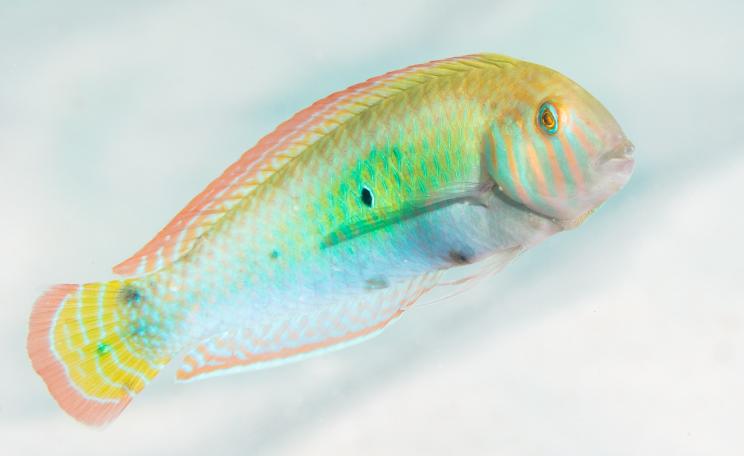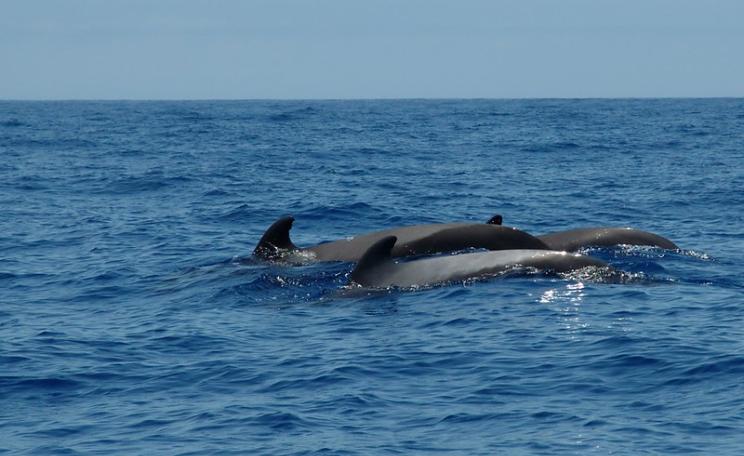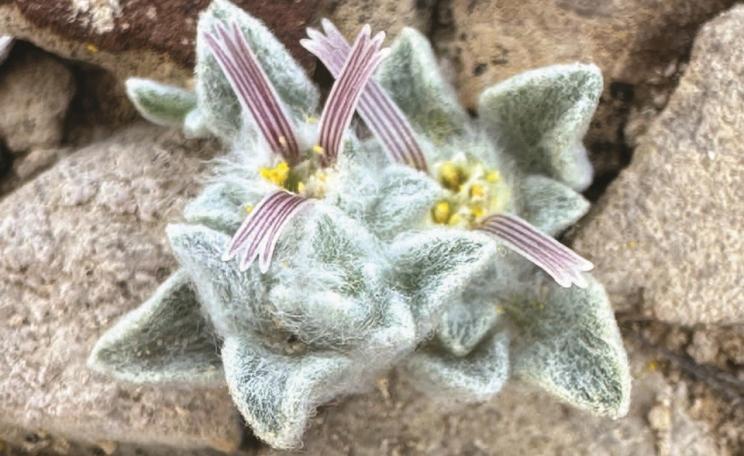Toxic politics, deep-seated inequality, corruption and embedded organised criminality have profoundly affected the park and surrounding communities.
A staggering 499 rhinos were killed by poachers in South Africa in 2023, an increase of 51 on the poaching numbers for 2022. This disappointing figure is a chilling reminder that the South African government and wildlife authorities have not got poaching under control.
Barbara Creecy, the minister of forestry, fisheries and the environment (DFFE), said when releasing the annual poaching figures that poaching had dropped in Kruger National Park, previously the focal point of rhino crime. However, she added: “The pressure again has been felt in the KwaZulu-Natal (KZN) province with Hluhluwe-iMfolozi Park facing the brunt of poaching cases.” A total 307 of the 499 killed nationally took place there. Creecy said the KZN figure for 2023 was the "highest poaching loss within this province" recorded for any one year.
In Kruger NP, 78 rhino were killed in 2023, compared with 124 in 2022 – a decrease due to improved security, careful vetting of staff in the park to weed out corrupt rangers and other staff and the dehorning of many of the rhinos, but also because there is a much smaller rhino population due to over a decade of heavy poaching.
Gangs
White rhino numbers in Kruger fell from 10,621 in 2011 to 1,988 at the end of 2022 and there is now likely to have been a further fall in 2023 when natural mortality is added to the poaching figures and balanced against births: black rhino are down from 415 in 2013 to 208 at the end of 2022.
KZN became the main focus for poaching in 2023 with 307 poached in Hluhluwe-iMfolozi alone, compared with 93 in 2020 and a jump to to 244 in 2022 (228 on reserves and 16 privately-owned).
Pelham Jones of the private Rhino Owners’ Association predicted a level of 282 in 2023 in the province’s reserves (especially Hluhluwe-iMfolozi), a prediction which turned out to be too optimistic with 307 rhino killed in 2023 in Hluhluwe-iMfolozi alone and 325 across the whole province according to DFEE figures.
KZN and Hluhluwe-iMfolozi have a number of problems which make poaching easier, now that security has been tightened in Kruger.
Toxic politics, deep-seated inequality, corruption and embedded organised criminality have profoundly affected the park and surrounding communities.
Cedric Coetzee, head of rhino protection at Hluhluwe-iMfolozi in KZN, told me when I visited him there in 2016 that while it might take poachers days to track a rhino in Kruger, the high density of animals in the KwaZulu-Natal reserves meant they might only spend two to three hours there before killing a rhino and escaping with its horns.
The upsurge in poaching in KZN demonstrates how the accessibility of rhino in reserves like Hluhluwe-iMfolozi exposes them to poaching as gangs moved in.
KZN is a province beset by corruption, and both political and criminal violence, with violent factional struggles within the governing African National Congress Party.
Bribes
Corruption in provincial government, law enforcement and the judiciary is rife. The major example of this has been the investigation and suspension of KZN Regional Court President Eric Nzimande following accusations of corrupt payments, racketeering and receiving bribes to appoint unsuitable candidates as attorneys in cases.
The Save the Wild NGO had campaigned for Nzimande’s suspension believing him to have been key in obstructive cases against suspected rhino poaching kingpins – kingpins being the term used to describe the leaders of highly organised poaching syndicates, which are often involved in a wide range of violent criminal activities.
Nzimande was charged with offences related to corruption and is awaiting trial. Implicated in his crimes is Z.W. Ngwenya, who represented the suspected rhino poaching kingpin Dumisani Gwala in his court appearances.
Gwala was arrested in 2014 on rhino poaching charges. Over a period of nine years there were 30 postponements of his trial after a series of objections by his defence team.
In July 2023, a magistrate dismissed the case against him, declaring him not guilty on the poaching charges on the basis that evidence presented by the prosecutors was for some reason not admissible, though he did receive a suspended sentence and a small fine for resisting arrest.
Toxic
The corruption, incompetence and often political interference in cases means that those at the top of the poaching syndicates escape justice or spend years on bail, during which time they can continue directing the poachers on the ground.
With 325 rhinos poached for their horns in KZN 2023, KZN recorded only 49 arrests and 13 seizures of illegal weapons, and these were low-level poachers not the gang leaders.
Work has been done to end corruption within Kruger staff and to track payments to corrupt rangers and poachers (with the Hawks and the international accountancy and management company KPMG having some success in this field), with more integrity testing of employees and those applying for park jobs.
Ending corruption within Kruger, Hluhluwe-iMfolozi and other parks or reserves is crucial to reducing poaching in the long-term, as 40-70 per cent of Kruger’s anti-poaching and law enforcement staff are thought "to be aiding poaching networks or involved in corrupt or criminal activities in some way including high levels of fuel theft". Hluhluwe-iMfolozi is riven with corruption, incompetence and sheer fatigue of those fighting poaching.
The criminal syndicates involved in poaching often have close political connections with corrupt police, judges and members of the governing ANC. The diverse links with corrupt individuals in key state institutions has enhanced their ability to recruit national park and provincial reserve employees and use them to aid poaching operations.
As Julian Rademeyer, the investigative journalist and rhino trade expert, acutely observed: "Toxic politics, deep-seated inequality, corruption and embedded organised criminality have profoundly affected the park and surrounding communities. Crime and corruption in the Kruger National Park should not be viewed in isolation without taking the impact of organized crime in Mpumalanga, including kidnappings, cash-in-transit heists, ATM bombings, illegal mining, extortion and corruption, into account."
Incorruptible
Police and judicial corruption and the role of provincial ANC postholders as godfathers of a diversity of crimes makes this criminal nut a very hard one to crack.
The ability of the criminal syndicates not just to frustrate investigations but to kill lead investigators was demonstrated by the assassination of Hawks (an elite organised crime unit of the South African Police) investigator Lt-Col Leroy Brewer in March 2020 – he was a key figure in fighting organised crime.
Another key figure in rhino protection, Anton Mzimba, a ranger at Timbavati Reserve adjacent to Kruger, was killed in July 2002 in a suspected gangland killing to remove a thorn in the side of poachers. Mzimba was renowned as a committed defender of rhinos and as being incorruptible.
While the Hawks and other law enforcement bodies have tried to catch and jail the heads of crime syndicates involved in rhino poaching, prosecutions have often been inept or held up by the slow and corrupt judicial system.
Big Joe Nyalunga, a former policeman who turned to rhino poaching and drug smuggling, was arrested at Hazyview, Mpumalanga, a few kilometres from Kruger NP in 2011 and then again in 2012 – he was charged with possession of four rhino horns and a large quantity of cannabis, 60 hunting knives and pangas, silencers for .375 and .458 rifles and stolen laptops, all at a time when he was on bail for suspected money laundering.
Investigations over a long period, amid repeated attempts to get him in front of a judge were frustrated by endless delays engineered by Nyalunga’s lawyers, led to the discovery of large amounts of cash suspected of being used by him to pay for rhino poaching and the charging of six Mozambicans suspected of having poached rhino to order for Nyalunga.
As the case dragged on with continual postponements, with several of his co-accused disappearing or being deported, Nyalunga was arrested again in May 2023 on suspicion of rhino poaching, after a high-speed car chase following a poaching incident at Lydenburg. Initially remanded in custody, he was eventually granted bail and is due in court at some unspecified date in the future.
Combat
There is also serious violence between and within criminal syndicates. A notorious criminal syndicate boss and rhino horn kingpin, Clyde Mnisi was shot dead in a suspected gangland killing in March 2023.
He was due to appear in court in April 2023 for his role as a key player in the rhino horn trade as part of a syndicate including policemen and employees at Kruger NP. He was also believed to be involved in cash-in-transit robberies. Mnisi’s wife was killed in another gang-style shooting soon after.
He had close connections with Nyalunga and with another rhino kingpin, Petros Mabuza, who had also been killed in what appeared to be a criminal turf war. Despite his reputation as a poacher and criminal, Mabuza’s funeral was attended by leading members of the ANC in Mpumalanga.
The web of criminal and political connections make this a very tough assignment for those in the Hawks to combat.
Impunity
Dr Jo Shaw, CEO of Save the Rhino International, who was previously African Rhino Lead for WWF International, and Senior Manager: Wildlife Portfolio for WWF South Africa, said that the new poaching figures from South Africa paint ‘a worrying picture for rhinos, particularly those in Hluhluwe-iMfolozi Park.
Rangers are working tirelessly to protect rhinos on the ground, but to make the necessary impact, the upper echelons of crime networks must be disrupted, and this requires a coordinated multi-agency response.
All partners involved urgently need more resources to address the threats at this level. There isn’t an overnight solution, but with a rhino poached every 17 hours in South Africa, we can’t afford to lose any more time.’
The new poaching figures are terrible and a worrying sign that there is a long way to go to bring poaching under control and start to provide sufficient security for rhino numbers to recover, which clearly will not be accomplished quickly or easily.
Anti-poaching measures are important but the major threat is the high level of corruption within the political, law enforcement, wildlife and judicial agencies and, one must not forget, the crushing levels of poverty, unemployment and dire living conditions of millions of South Africans which provides a ready pool of young men desperate to improve their lives who can be tempted by the cash offered to poach by the kingpins, who are able to act with impunity.
This author
Professor Keith Somerville is a senior research fellow at the Institute of Commonwealth Studies, a member of the Durrell Institute of Conservation and Ecology at the University of Kent and teaches at the centre for journalism. He has written a number of books on wildlife and conservation issues such as the ivory trade, human-lion conflict, hyenas, jackals, honey badgers and his study of the history of human exploitation and conservation of African rhinos will be published by January 2025 by Pelagic Books.





